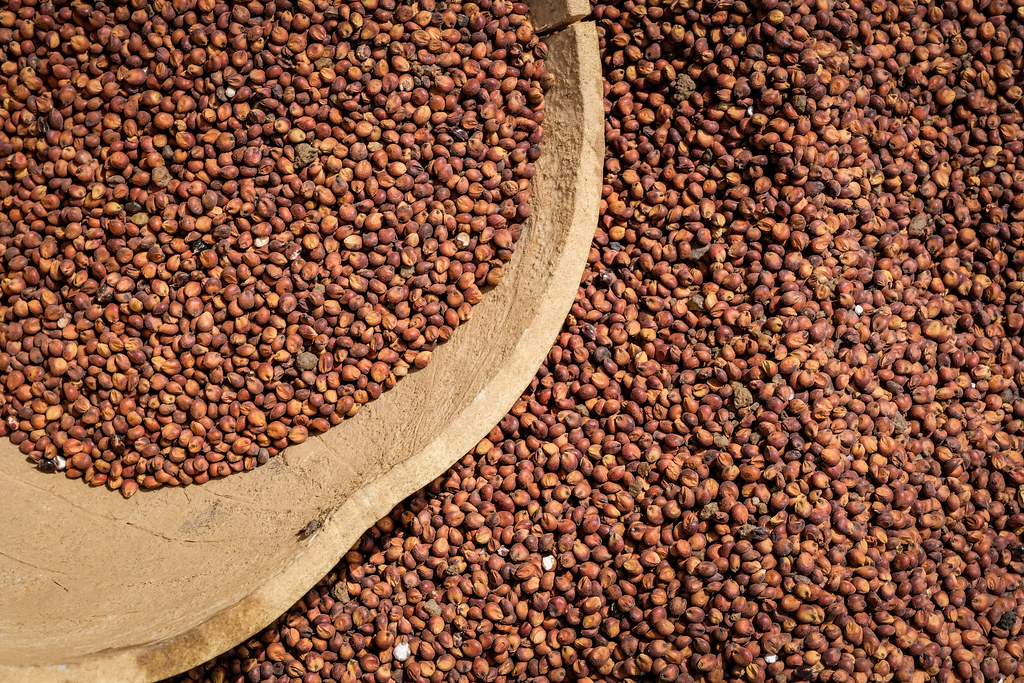YOUR CART
- No products in the cart.
Subtotal:
$0.00
BEST SELLING PRODUCTS

In the world of cereals and grains, guinea corn (Sorghum bicolor), also known as sorghum, stands as a resilient and versatile crop that has been nourishing communities for centuries.
Its economic importance is deeply intertwined with its nutritional value, adaptability to various environments, and diverse applications. From subsistence farming to modern agricultural practices, guinea corn plays a pivotal role in economies and livelihoods across the globe.
Guinea corn is a powerhouse of essential nutrients, making it a crucial staple in many diets. Rich in complex carbohydrates, dietary fiber, and proteins, it provides sustained energy and contributes to overall health.
Its gluten-free nature is a boon for those with gluten sensitivities, widening its consumer base. Additionally, guinea corn contains vitamins and minerals like niacin, magnesium, phosphorus, and iron, promoting strong bones, energy metabolism, and cognitive function.
One of the remarkable aspects of guinea corn is its ability to thrive in challenging environments. It exhibits remarkable resistance to drought, which is a common feature in arid and semi-arid regions.
This resilience makes it a dependable crop even in conditions where other crops might fail. Consequently, guinea corn serves as a reliable food source and a lifeline for communities in regions where water scarcity poses a constant threat to agriculture.
Guinea corn plays a vital role in food security, especially in developing countries. Many subsistence farmers rely on guinea corn as a staple crop due to its low input requirements and ability to grow in less fertile soils.
The plant’s grains can be consumed directly or processed into various food products such as porridge, flatbreads, and beverages. This versatility provides sustenance to families who depend on their own agricultural production for survival.
Beyond its role in traditional diets, guinea corn has found its way into various industrial applications. One notable application is in the production of biofuels.
The stalks and residues left after grain harvest can be processed to extract biofuel, contributing to renewable energy sources and reducing the dependence on fossil fuels. This dual-purpose use enhances the economic value of guinea corn cultivation.
The economic importance of guinea corn extends to the realm of livestock farming. The plant’s foliage and grain stalks are utilized as fodder for animals due to their nutritional content.
This not only provides a balanced diet for livestock but also reduces the pressure on grazing lands. As demand for animal products continues to rise, the availability of nutritious and cost-effective feed sources like guinea corn becomes paramount for sustainable livestock production.
Guinea corn has gained international recognition for its economic potential. Its grain can be processed into flour, meal, or even popped like popcorn for various culinary uses.
This has opened doors for export and trade opportunities, contributing to the economic growth of countries that cultivate guinea corn.
Moreover, the gluten-free and health-conscious trends in the global food market have further boosted its demand, making it an attractive commodity for international trade.
In many cultures, guinea corn holds deep-rooted significance. Traditional ceremonies, festivals, and rituals often incorporate guinea corn-based foods, reflecting its cultural importance. By preserving these customs, the crop maintains its relevance in modern society while also contributing to cultural tourism and related economic activities.
In summary, guinea corn stands as a testament to nature’s ability to provide sustenance and prosperity. Its economic importance ranges from its nutritional value and agricultural resilience to its contributions in various industries and cultural practices.
As the world faces new challenges in food security, renewable energy, and sustainable agriculture, guinea corn offers a valuable lesson on harnessing the power of a single crop to drive economic growth and improve livelihoods.